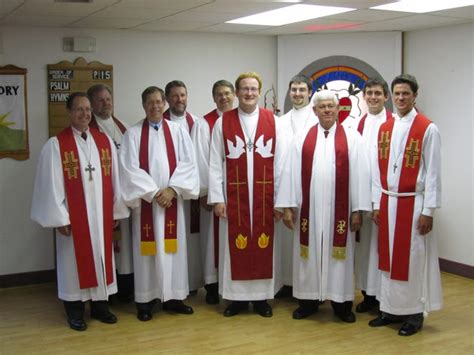Wisconsin Ordination: No Seminary Required – Exploring Alternative Paths to Ministry
The path to ordination in Wisconsin, and indeed across many denominations, is often associated with years spent in seminary. However, the reality is more nuanced. While seminary training is a common and highly valued route, it's not the only way to achieve ordination in Wisconsin. This article explores alternative pathways, addressing common questions and providing insights into the diverse landscape of ministry within the state.
What are the Requirements for Ordination in Wisconsin?
The requirements for ordination vary dramatically depending on the specific denomination. There is no single, overarching body governing ordination in Wisconsin. Each denomination—whether it be Baptist, Methodist, Presbyterian, Pentecostal, or non-denominational—sets its own standards. Some denominations may have a strong preference for seminary training, while others may prioritize experience and demonstrated spiritual maturity. Generally, however, most will expect:
- Demonstrated commitment to faith: This often involves a lengthy period of active participation in the church community, showing leadership and dedication.
- Spiritual maturity and character: Denomination-specific requirements for moral character and ethical conduct are assessed, often through recommendations and interviews.
- Theological understanding: Even without formal seminary training, a deep understanding of theological principles is typically required. This may be assessed through examinations, mentoring programs, or independent study.
- Leadership skills and experience: Ordination involves leading and guiding a congregation, so practical experience in ministry roles is crucial.
Can I Be Ordained in Wisconsin Without Going to Seminary?
Yes, it is absolutely possible to be ordained in Wisconsin without attending seminary. Many denominations recognize the value of practical experience and alternative forms of theological education. However, it's crucial to understand that this path often requires more time and effort to demonstrate the necessary skills and knowledge.
What are the Alternative Paths to Ordination in Wisconsin?
Several alternative paths exist, including:
- Mentorship programs: These structured programs pair prospective candidates with experienced ministers who guide their theological development and practical training.
- Independent study and theological coursework: Individuals may choose to pursue theological education through online courses, independent study, or correspondence programs. However, this requires considerable self-discipline and motivation.
- Extensive ministry experience: Demonstrating significant leadership and service within a church community can be a compelling alternative to formal seminary training. This could include pastoral care, preaching, teaching, and community outreach.
- Life experience and giftedness: Some denominations may prioritize a candidate's demonstrated spiritual gifts and life experiences over formal education. This approach often involves a rigorous vetting process to ensure the candidate's suitability.
What are the Advantages and Disadvantages of Alternative Paths?
Advantages:
- Flexibility: Alternative pathways offer greater flexibility in terms of timing, location, and cost compared to traditional seminary education.
- Practical experience: These paths often emphasize practical ministry experience, leading to a more immediate application of learned skills.
- Affordability: Avoiding the significant financial burden of seminary education can be a major advantage.
Disadvantages:
- More time and effort: Demonstrating equivalent theological knowledge and practical skills may take longer and require more self-direction.
- Limited networking opportunities: The structured environment of seminary offers valuable networking opportunities with fellow students and faculty.
- Potential for bias: Some denominations may hold less weight to alternative paths, potentially impacting career advancement or opportunities.
How Do I Find a Denomination That Accepts Alternative Paths?
Research is key. Begin by identifying denominations whose theological perspectives align with your own. Then, explore their websites or contact their leadership directly to inquire about ordination requirements and alternative pathways. Attend services at different churches to gain a better understanding of their approaches to ministry and leadership.
Conclusion: Embracing Diverse Paths to Ministry in Wisconsin
The path to ordination in Wisconsin is not a one-size-fits-all model. While seminary training remains a valuable option, alternative routes exist, providing flexibility and accessibility to those called to ministry. Thorough research, self-reflection, and a proactive approach are essential for those seeking ordination through a non-traditional route. The focus should always be on demonstrating a deep commitment to faith, theological understanding, and a passion for serving God and the community.

